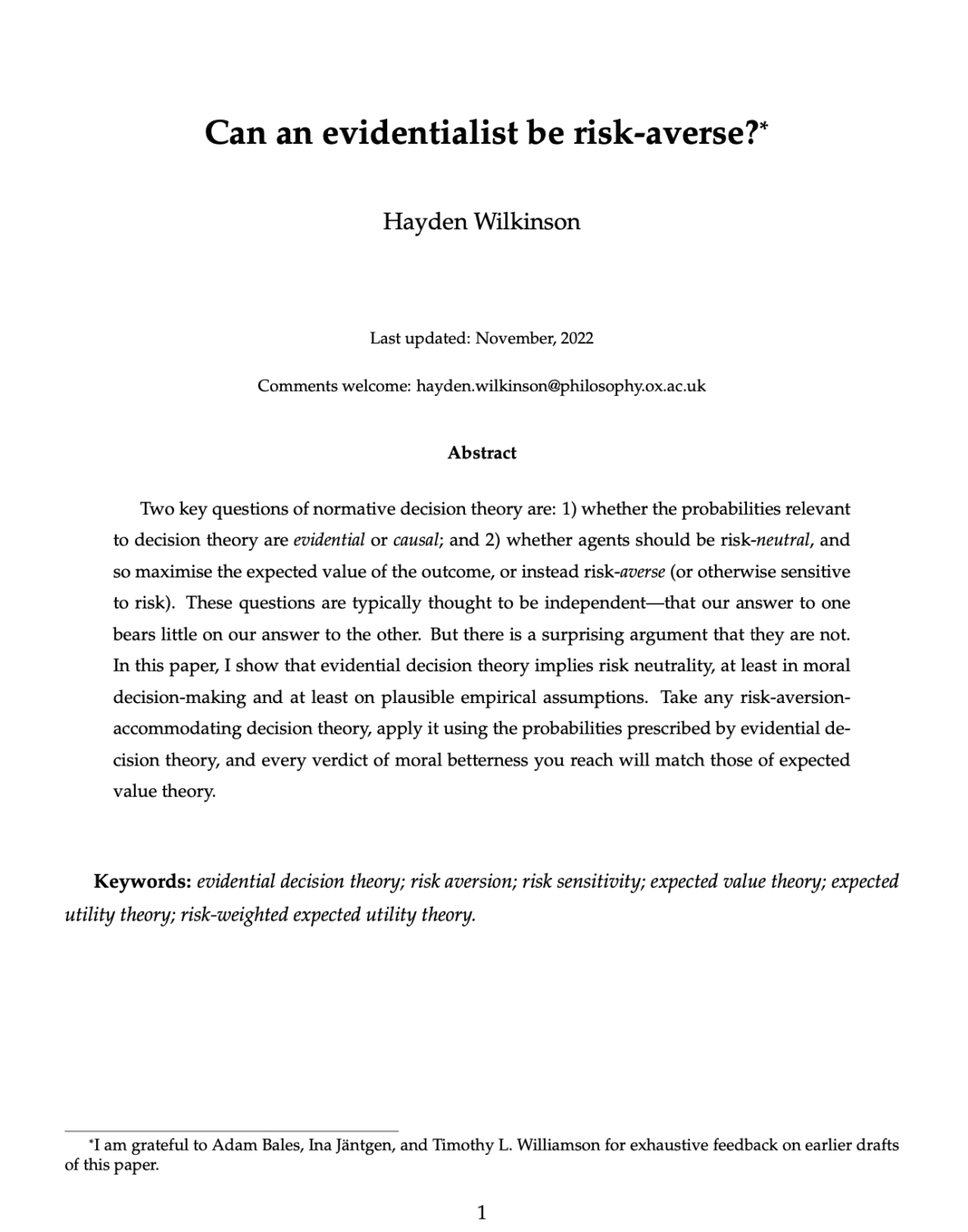Can an evidentialist be risk-averse?
Hayden Wilkonson (Global Priorities Institute, University of Oxford)
GPI Working Paper No. 21-2022
Two key questions of normative decision theory are: 1) whether the probabilities relevant to decision theory are evidential or causal; and 2) whether agents should be risk-neutral, and so maximise the expected value of the outcome, or instead risk-averse (or otherwise sensitive to risk). These questions are typically thought to be independent - that our answer to one bears little on our answer to the other. But there is a surprising argument that they are not. In this paper, I show that evidential decision theory implies risk neutrality, at least in moral decision-making and at least on plausible empirical assumptions. Take any risk-aversion-accommodating decision theory, apply it using the probabilities prescribed by evidential decision theory, and every verdict of moral betterness you reach will match those of expected value theory.
Other working papers
Doomsday and objective chance – Teruji Thomas (Global Priorities Institute, Oxford University)
Lewis’s Principal Principle says that one should usually align one’s credences with the known chances. In this paper I develop a version of the Principal Principle that deals well with some exceptional cases related to the distinction between metaphysical and epistemic modality. I explain how this principle gives a unified account of the Sleeping Beauty problem and chance-based principles of anthropic reasoning…
A non-identity dilemma for person-affecting views – Elliott Thornley (Global Priorities Institute, University of Oxford)
Person-affecting views in population ethics state that (in cases where all else is equal) we’re permitted but not required to create people who would enjoy good lives. In this paper, I present an argument against every possible variety of person- affecting view. The argument takes the form of a dilemma. Narrow person-affecting views must embrace at least one of three implausible verdicts in a case that I call ‘Expanded Non- Identity.’ Wide person-affecting views run into trouble in a case that I call ‘Two-Shot Non-Identity.’ …
‘The only ethical argument for positive 𝛿’? – Andreas Mogensen (Global Priorities Institute, Oxford University)
I consider whether a positive rate of pure intergenerational time preference is justifiable in terms of agent-relative moral reasons relating to partiality between generations, an idea I call discounting for kinship. I respond to Parfit’s objections to discounting for kinship, but then highlight a number of apparent limitations of this…

